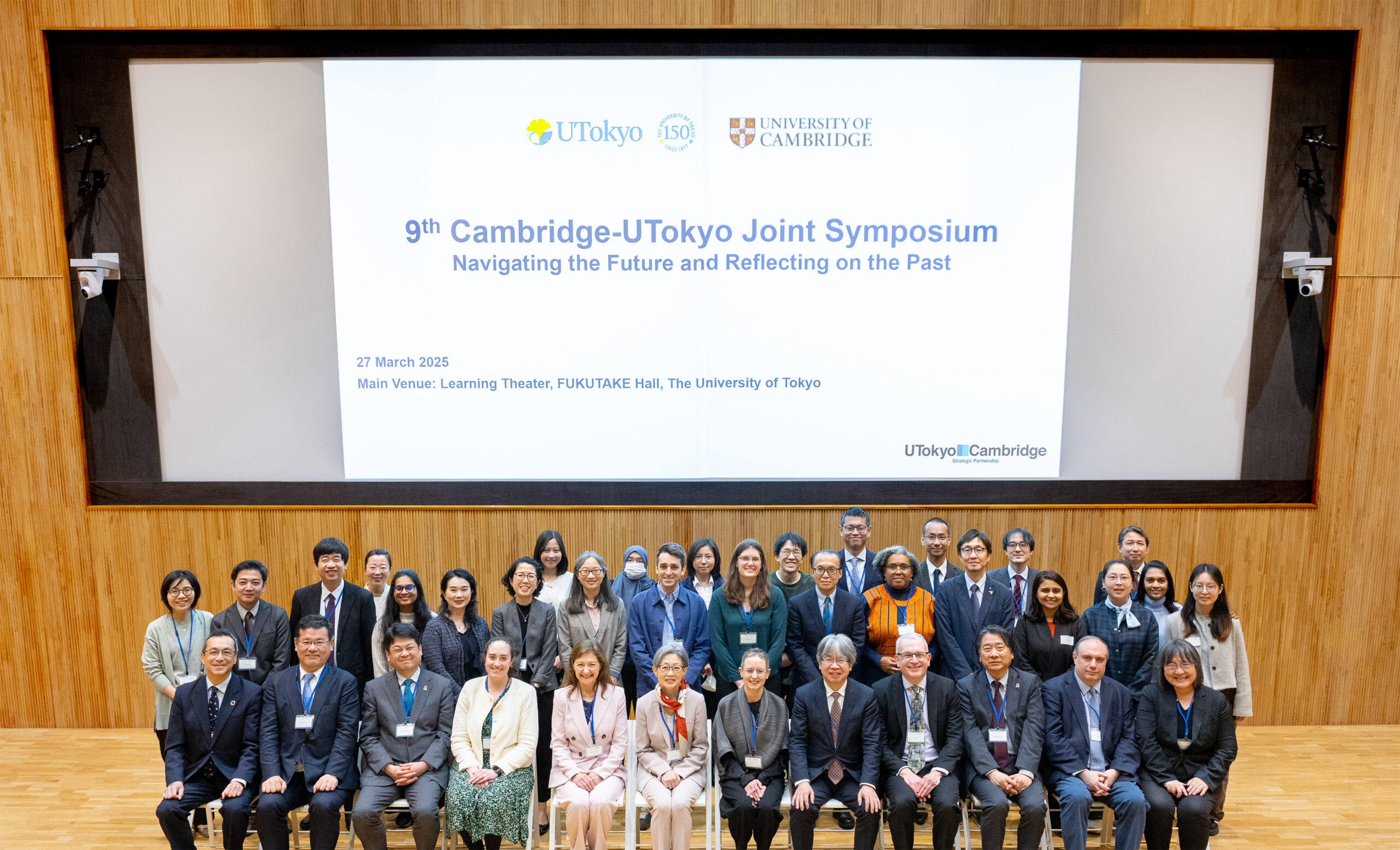On March 27–28, 2025, the Ninth Cambridge-UTokyo Joint Symposium was held at the University of Tokyo's Hongo Campus. This year’s main session focused on Global Warming and Sustainability, addressing the urgent challenges posed by climate change, including rising temperatures, extreme weather events, and environmental degradation.
The session featured keynote presentations from distinguished scholars at the University of Tokyo and the University of Cambridge, offering historical insights, exploring the path to net zero, and discussing innovative solutions for sustainability. A panel of experts from diverse fields—climate science, engineering, urbanism, energy systems, technology policy, and environmental law—analyzed these complexities and proposed pathways toward a sustainable future. The session also included opening remarks from senior leaders of both universities and representatives from the Science and Innovation sector of the British Embassy.
In the afternoon, three parallel sessions covered a range of critical topics:
- Global Dialogues: Making Intersectional Space for Studying Gender and Race in and with Japan
- Engineering for the Future
- Translating Engineering Biology from the Bench to the Bioeconomy
The first day concluded with a session titled Working Towards Collaborative Impact, where faculty members engaged in discussions on how the symposium’s exchanges could lead to concrete academic and societal contributions.
On March 28, the Dialogue Series: UTokyo-Cambridge Voices featured seven thematic workshops:
1. Seeing is Reading: "〈見る〉という入り口"
2. UTokyo-Cambridge Joint Seminar: Sustainable Societies and Cities – A Comparison of Research Approaches from International Perspectives
3. UTokyo-Cambridge Voices: Engineering the Future by Technology Innovation
4. Materials, Devices, and Systems for Seamless Human-Computer Interactions
5. UK-Japan Security and Defense Partnerships in the Indo-Pacific
6. AI, Information Integrity, and Social Impact: Uses and Misuses
7. Fostering International Multi-disciplinary Research and Doctoral Training
The symposium successfully fostered meaningful discussions, strengthened collaboration between the two universities, and set the stage for future joint research initiatives.
The session featured keynote presentations from distinguished scholars at the University of Tokyo and the University of Cambridge, offering historical insights, exploring the path to net zero, and discussing innovative solutions for sustainability. A panel of experts from diverse fields—climate science, engineering, urbanism, energy systems, technology policy, and environmental law—analyzed these complexities and proposed pathways toward a sustainable future. The session also included opening remarks from senior leaders of both universities and representatives from the Science and Innovation sector of the British Embassy.
In the afternoon, three parallel sessions covered a range of critical topics:
- Global Dialogues: Making Intersectional Space for Studying Gender and Race in and with Japan
- Engineering for the Future
- Translating Engineering Biology from the Bench to the Bioeconomy
The first day concluded with a session titled Working Towards Collaborative Impact, where faculty members engaged in discussions on how the symposium’s exchanges could lead to concrete academic and societal contributions.
On March 28, the Dialogue Series: UTokyo-Cambridge Voices featured seven thematic workshops:
1. Seeing is Reading: "〈見る〉という入り口"
2. UTokyo-Cambridge Joint Seminar: Sustainable Societies and Cities – A Comparison of Research Approaches from International Perspectives
3. UTokyo-Cambridge Voices: Engineering the Future by Technology Innovation
4. Materials, Devices, and Systems for Seamless Human-Computer Interactions
5. UK-Japan Security and Defense Partnerships in the Indo-Pacific
6. AI, Information Integrity, and Social Impact: Uses and Misuses
7. Fostering International Multi-disciplinary Research and Doctoral Training
The symposium successfully fostered meaningful discussions, strengthened collaboration between the two universities, and set the stage for future joint research initiatives.
Date :
2025/03/27

